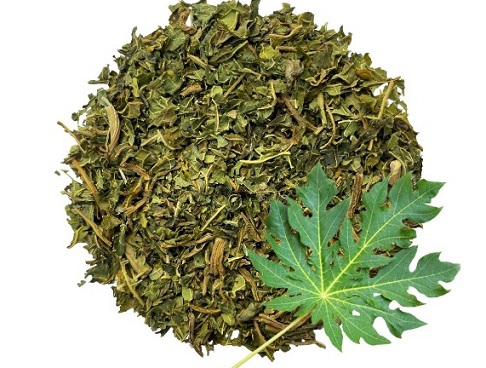Nikhil Prasad Fact checked by:Thailand Medical News Team Jul 08, 2024 9 months, 2 weeks, 4 days, 12 hours, 21 minutes ago
COVID-19 News: Researchers from various institutions in Gabon conducted an ethnobotanical survey to document the plants used during the pandemic and identify potential species for further investigation. This
COVID-19 News report sheds light on their findings and the significance of these plants in Gabonese culture and health practices.
 Medicinal Plants Helped Combat COVID-19 In Gabon
Gabon’s COVID-19 Context
Medicinal Plants Helped Combat COVID-19 In Gabon
Gabon’s COVID-19 Context
Gabon, a country in Central Africa, faced the COVID-19 pandemic with over 49,000 cases and 307 fatalities since the first reported case in 2020. Despite the availability of vaccines and modern medicines, many Gabonese turned to traditional medicinal plants to prevent and treat COVID-19 symptoms. This preference was influenced by cultural beliefs and a long-standing tradition of using plant-based remedies for various ailments.
The Study
Researchers from the Institut de Pharmacopée et de Médecine Traditionnelle (IPHAMETRA), Centre National de la Recherche Scientifique et Technologique (CENAREST), Centre Hospitalier Universitaire Mère-Enfant, Fondation Jeanne EBORI, and Groupe de Recherche en Immunologie 2, Microbiologie appliquée, Hygiène et Physiologie conducted an ethnobotanical survey in Libreville, Gabon. The survey involved 97 participants, including traditional healers, medicinal plant vendors, and the general population.
Data Collection Methods
The survey was conducted between February and June 2022. Researchers used a semi-structured questionnaire for interviews with traditional healers and medicinal plant vendors. For the general population, an online questionnaire was disseminated through social media platforms like Facebook, Instagram, Messenger, and WhatsApp. This approach ensured a wide reach despite the movement restrictions during the pandemic.
Medicinal Plants Identified
The survey identified 63 plant species from 35 families used to treat COVID-19 symptoms. The most commonly cited plants included Annickia chlorantha, Citrus sp., Alstonia congensis, Zingiber officinale (ginger), and Carica papaya (papaya). These plants were frequently used individually or in combination with others to formulate remedies.
Common Symptoms Treated
The prevalent COVID-19 symptoms treated with medicinal plants included fever, cough, fatigue, and cold. Other symptoms like respiratory conditions, general pain, and breathlessness were also managed using these plants. The study highlighted that most participants used plant-based remedies for both prevention and treatment of COVID-19 symptoms.
Preparation and Administration Methods
The most common methods of preparing these remedies were infusion, decoction, and maceration. Infusion involved steeping plant parts in hot water, decoction required boiling the plant parts, and maceration involved soaking them in liquid. The remedies were pri
marily administered orally, while steam baths were also a popular method, especially for treating respiratory symptoms.
Effectiveness of Medicinal Plants
Participants reported a high reliance on medicinal plants during the pandemic. About 66% used these plants for prophylaxis, prevention, and treatment of COVID-19, while only 34% did not use them at all. The high use of these remedies suggests a strong cultural belief in their effectiveness against COVID-19.
Importance of Ethnobotanical Knowledge
The study underscored the importance of traditional knowledge in managing health crises. The use of medicinal plants is deeply rooted in Gabonese culture, passed down through generations. This knowledge proved valuable during the COVID-19 pandemic, providing an alternative to modern medicines, especially in a context where access to healthcare might be limited.
Popular Formulations
Some popular herbal formulations included combinations of multiple plants. For example, a remedy combining Annickia chlorantha, Alstonia congensis, and Syzygium aromaticum (clove) involved using barks and flowers, prepared through maceration, infusion, or decoction, and taken 2-3 times a day. Another recipe used leaves and fruits from plants like Musa x paradisiaca (banana), Carica papaya, and Mangifera indica (mango) in a decoction taken twice daily.
Conclusion
The survey findings highlight the significance of medicinal plants in managing COVID-19 symptoms in Gabon. The widespread use of these plants reflects a cultural reliance on traditional medicine, which provided a valuable resource during the pandemic. The study suggests that further research and clinical trials are needed to confirm the efficacy and safety of these plants for treating COVID-19.
The study findings were published in the peer-reviewed journal: Frontiers in Pharmacology.
https://www.frontiersin.org/journals/pharmacology/articles/10.3389/fphar.2024.1393636/full
For the latest
COVID-19 News, keep on logging to Thailand Medical News.
Read Also:
https://www.thailandmedical.news/news/protein-from-sweet-potato-can-be-used-to-treat-covid-19
https://www.thailandmedical.news/news/herbs-and-phytochemicals-emodin-derivatives-as-potential-weapons-against-sars-cov-2
